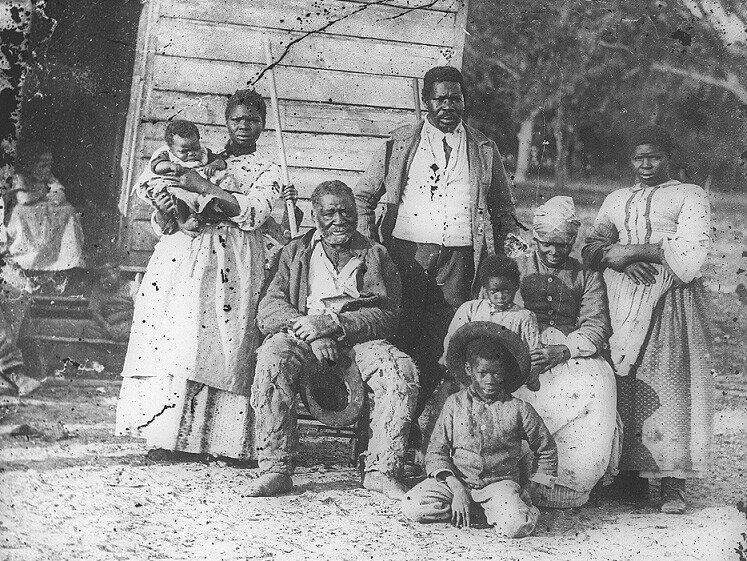History is not just a collection of dates and events—it's a narrative woven with the stories of individuals who shaped the world we live in today. However, some voices have been overlooked, their stories and names forgotten. Among them are millions of enslaved individuals who lived through the harrowing chapters of pre- and post-colonial America, including the area that would become the United States. Their identities, their lives, and their legacies deserve recognition.
In a groundbreaking initiative, American Ancestors has embarked on 10 Million Names, a collaborative project combining the resources of American Ancestors, FamilySearch, and other historical and genealogical organizations. The project is aimed at giving voice to these unheard figures of the past and illuminating their stories and their names for future generations.
Some Brief Historical Context of Records and Slavery in the United States
To understand the significance of 10 Million Names, it's crucial to know some important points concerning the historical context of slavery in the United States, the area the project focuses on. During the period of the Transatlantic Slave Trade between the 1500s and 1800s, it is estimated that millions of individuals were forcibly transported, sold, and subjected to unimaginable hardships.
Their labor helped build the early American economy and the prosperity of the United States as a nation, yet these individuals and many of their contributions remain unrecognized and unacknowledged.

The Need for Recognition and a Lack of Documentation
For centuries, the names and identities of enslaved individuals were shrouded in anonymity. They were considered property, devoid of agency and personhood in the eyes of the law. Their stories were often relegated to footnotes or touched only briefly, if mentioned at all, in historical accounts. However, their descendants still carry their legacy, yearning to reclaim their ancestors' identities and honor their resilience in the face of adversity.
The Vision of 10 Million Names
The 10 Million Names initiative represents a major shift in historical research and genealogy. It seeks to compile a comprehensive database of enslaved men, women, and children from pre- and post-colonial America in the area that is now the United States, spanning diverse geographic regions and historical periods. By documenting their names, birthplaces, family connections, and other pertinent details, the project aims to restore the stories of those whose voices were suppressed by the brutalities of slavery.
Collaboration between FamilySearch and American Ancestors
At the heart of 10 Million Names lies a spirit of collaboration and shared purpose. FamilySearch, the world's largest genealogy organization, will be working with American Ancestors on their initiative. FamilySearch brings its unparalleled resources and expertise to the project. With access to vast archives, digitized records, and cutting-edge technology, FamilySearch is at the forefront of preserving and sharing family histories on a global scale.

American Ancestors, the research arm of the New England Historic Genealogical Society (NEHGS), brings its specialized knowledge of American history and genealogy to enrich the project. With their specialty in rigorous scholarship and acute historical accuracy, American Ancestors will be ensuring that all individuals documented in the project receives the recognition they deserve.
Leveraging Technology
Technology plays a pivotal role in the success of 10 Million Names. Through advanced algorithms, machine learning, and crowd-sourced contributions, researchers will sift through vast troves of historical records to identify and document enslaved individuals with unprecedented speed and accuracy. Moreover, the project's online platform allows users to engage with historical documents, contribute their research findings, and connect with distant relatives across the globe.
Empowering Descendants and Communities
For descendants of enslaved individuals, the 10 Million Names project will become a powerful platform for discovering heritage and forging connections with their ancestors. Through uncovering their family histories and tracing their roots through the project's database, we hope descendants can find solace, pride, and a sense of belonging in their shared past.

Furthermore, the project extends beyond individual families to helping entire communities impacted by slavery. By preserving and sharing their collective ancestors’ stories, communities can confront the legacy of slavery, acknowledge the injustices of the past, and work towards reconciliation and healing in the present.
Challenges and Opportunities Ahead
Despite its ambitious goals,10 Million Names faces numerous challenges, including the fragmented nature of historical records, the inherent biases within archival sources, and the complexities of tracing enslaved individuals across generations and geographical boundaries. Recognizing the sensitive nature of the historical research and privacy rights of individuals, the project must also be handled with humility, empathy, and a commitment to ethical guidelines. With perseverance, collaboration, and the support of dedicated researchers and volunteers, these challenges can be overcome, opening up new opportunities for discovery and remembrance.
The Impact of 10 Million Names
The 10 Million Names project is a combination of collaboration, technology, and collective memory, furthering our understanding of the past and shaping the future. By giving voice to the voiceless and bringing to light the identities of those who were once forgotten, the project illuminates the enduring resilience and humanity of enslaved individuals in pre- and post-colonial America.

American Ancestors shared the story of 10 Million Names and their joint effort with FamilySearch and other entities on the main stage at RootsTech, on Friday, March 1, 2024. Watch the video for free online, and check out the other African American genealogy videos RootsTech.org has to offer:
What is RootsTech?
RootsTech is a place to learn, be inspired, and make connections through family history. Hosted by FamilySearch and sponsored by other leading genealogy organizations, we have hundreds of expert classes, tips and tricks videos, and inspiring stories that can help you experience family history like never before. Visit our on-demand learning library, or make plans to join us for our next virtual or in-person conference event.


